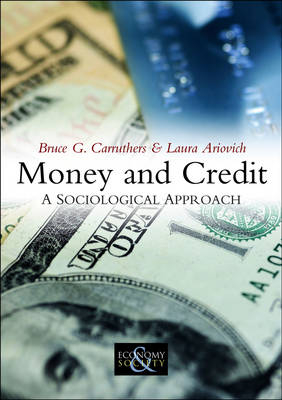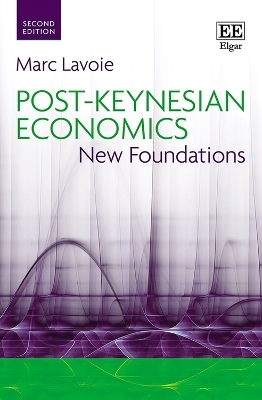
Money and Credit
A Sociological Approach
Seiten
2010
Polity Press (Verlag)
978-0-7456-4391-5 (ISBN)
Polity Press (Verlag)
978-0-7456-4391-5 (ISBN)
This book offers a fresh and uniquely sociological perspective on money and credit. As basic economic institutions, money and credit are easy to overlook when they work well. When they malfunction, as they did in the new millennium's global financial crisis, their importance becomes obvious and demands further investigation.
This book offers a fresh and uniquely sociological perspective on money and credit. As basic economic institutions, money and credit are easy to overlook when they work well. When they malfunction, as they did in the new millennium’s global financial crisis, their importance becomes obvious and demands further investigation.
Bruce Carruthers and Laura Ariovich examine the social dimensions of money and credit at both the individual and corporate levels, from the development of personal credit and a consumer society, to the role of government in the creation of money. In clear prose, they illustrate how the overall future of the economy is governed by the financial system and the flow of capital into, and out of, firms operating in particular industrial sectors, as well as the social meanings money itself acquires and the ways people distinguish between “dirty” and “clean” money.
This accessible and engaging book will be essential reading for upper-level students of economic sociology, and those interested in how the bills, coins and plastic in our pockets shape the world we live in.
This book offers a fresh and uniquely sociological perspective on money and credit. As basic economic institutions, money and credit are easy to overlook when they work well. When they malfunction, as they did in the new millennium’s global financial crisis, their importance becomes obvious and demands further investigation.
Bruce Carruthers and Laura Ariovich examine the social dimensions of money and credit at both the individual and corporate levels, from the development of personal credit and a consumer society, to the role of government in the creation of money. In clear prose, they illustrate how the overall future of the economy is governed by the financial system and the flow of capital into, and out of, firms operating in particular industrial sectors, as well as the social meanings money itself acquires and the ways people distinguish between “dirty” and “clean” money.
This accessible and engaging book will be essential reading for upper-level students of economic sociology, and those interested in how the bills, coins and plastic in our pockets shape the world we live in.
Bruce G. Carruthers is Professor of Sociology at Northwestern University Laura Ariovich is Becaria Superior at the University of Buenos Aires
Acknowledgments. Chapter 1: Introduction.
Chapter 2: A Brief History of Money.
Chapter 3: The Social Meaning of Money.
Chapter 4: Credit and the Modern Consumer Society.
Chapter 5: Credit and the Modern Corporate Economy.
Chapter 6: Conclusion.
Bibliography.
| Erscheint lt. Verlag | 29.1.2010 |
|---|---|
| Reihe/Serie | Economy and Society |
| Verlagsort | Oxford |
| Sprache | englisch |
| Maße | 155 x 217 mm |
| Gewicht | 408 g |
| Themenwelt | Sozialwissenschaften ► Soziologie |
| Wirtschaft ► Volkswirtschaftslehre ► Finanzwissenschaft | |
| ISBN-10 | 0-7456-4391-4 / 0745643914 |
| ISBN-13 | 978-0-7456-4391-5 / 9780745643915 |
| Zustand | Neuware |
| Informationen gemäß Produktsicherheitsverordnung (GPSR) | |
| Haben Sie eine Frage zum Produkt? |
Mehr entdecken
aus dem Bereich
aus dem Bereich
eine Einführung in die Staatsfinanzen
Buch | Hardcover (2024)
Vahlen (Verlag)
39,80 €
New Foundations
Buch | Softcover (2022)
Edward Elgar Publishing Ltd (Verlag)
64,75 €


